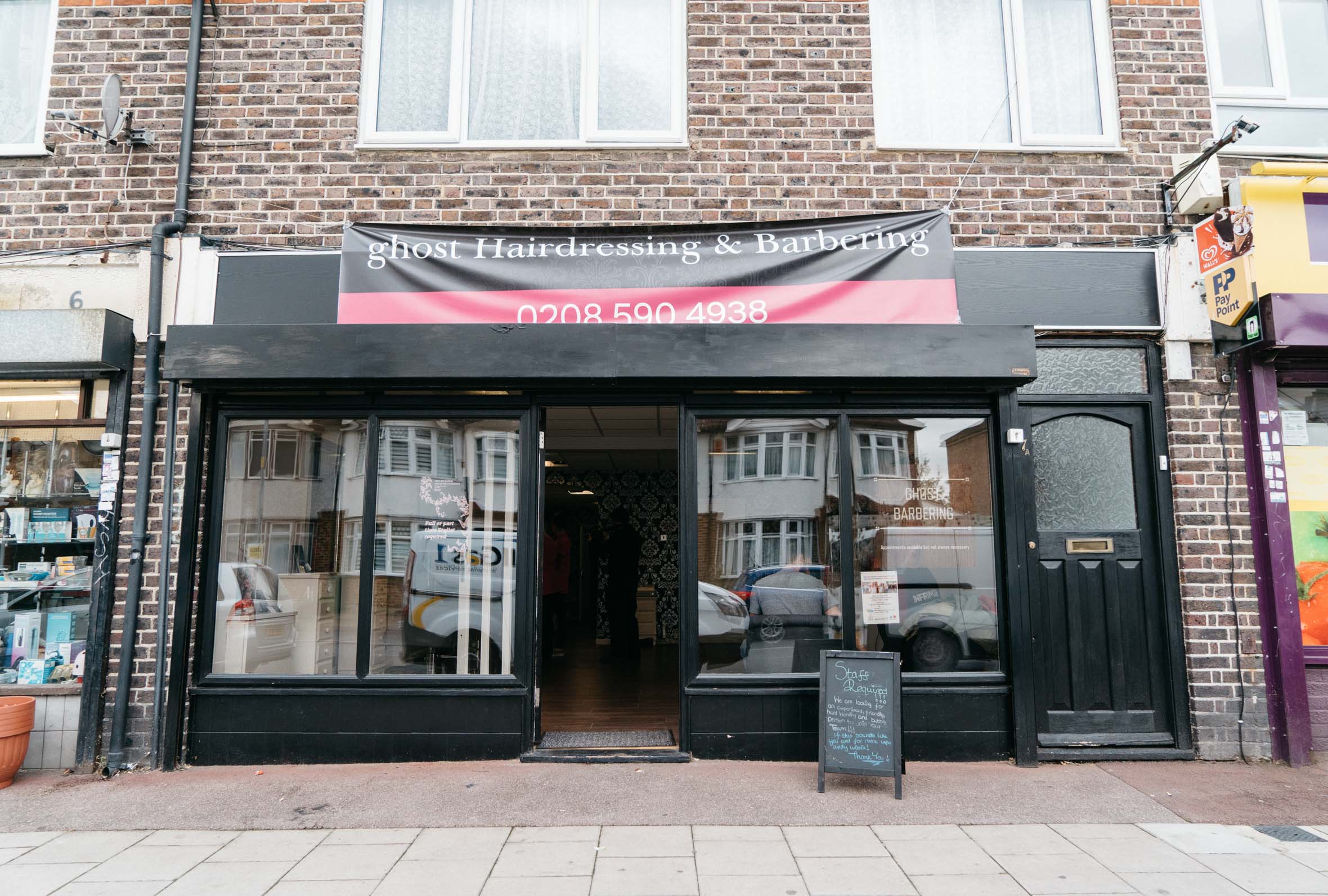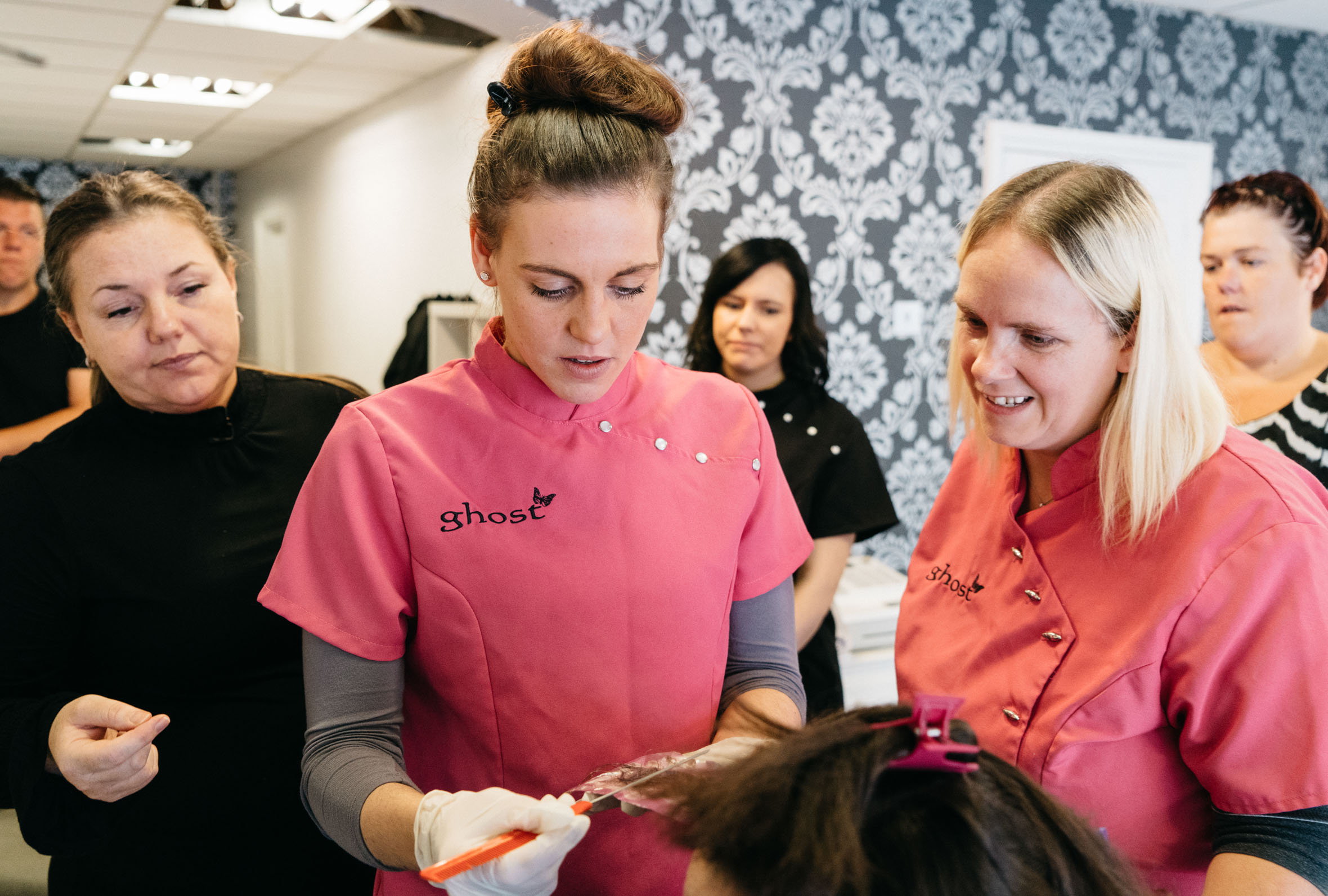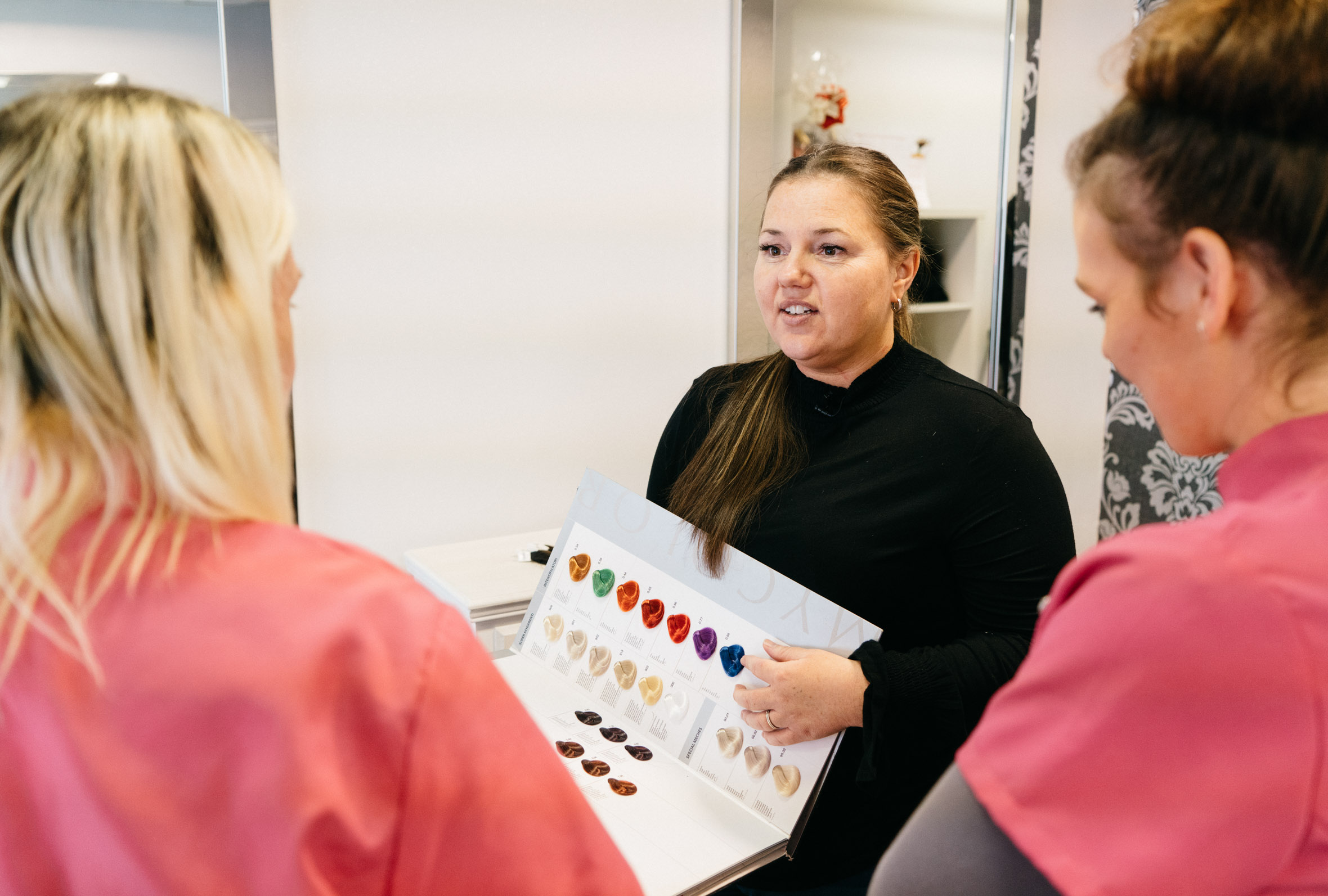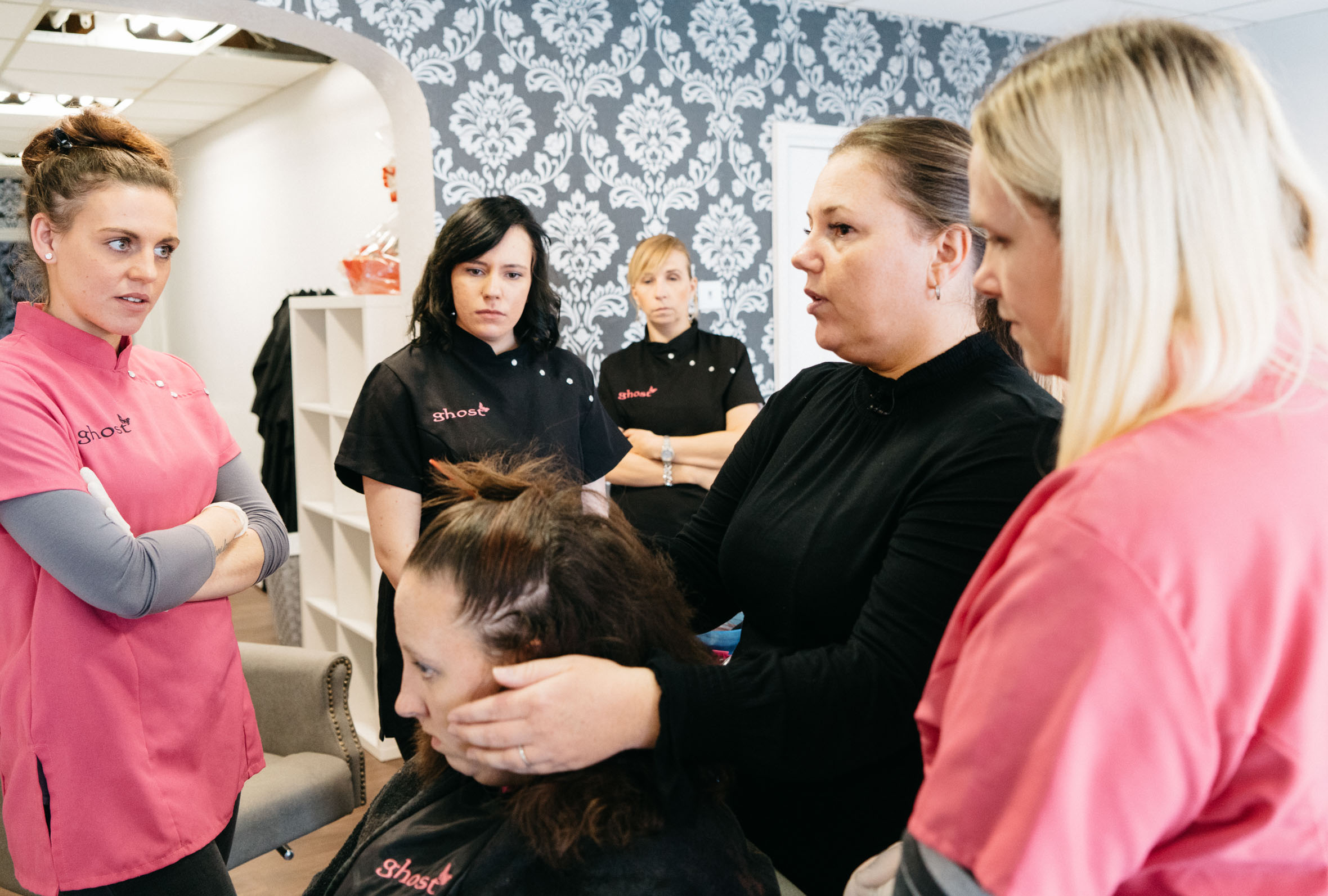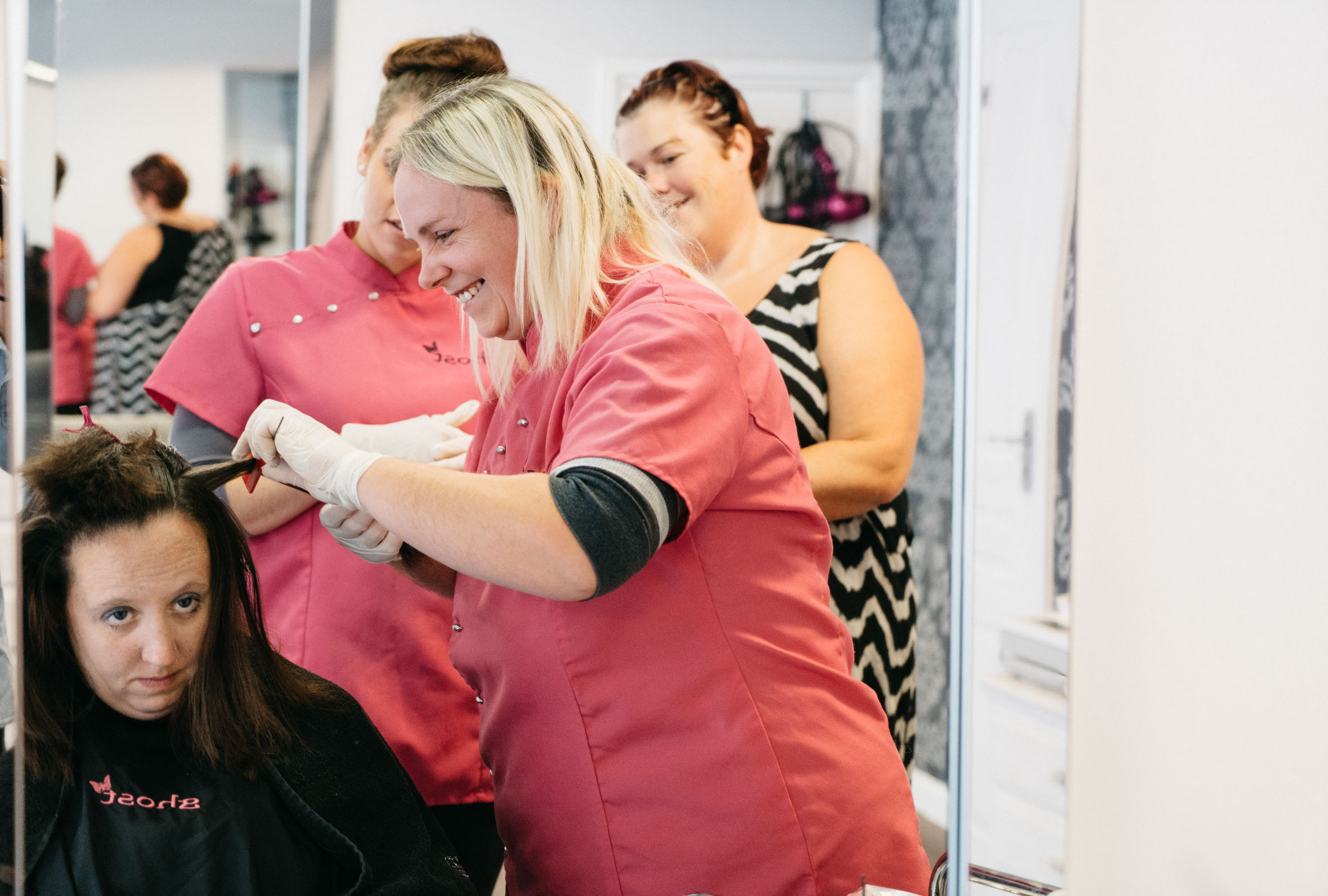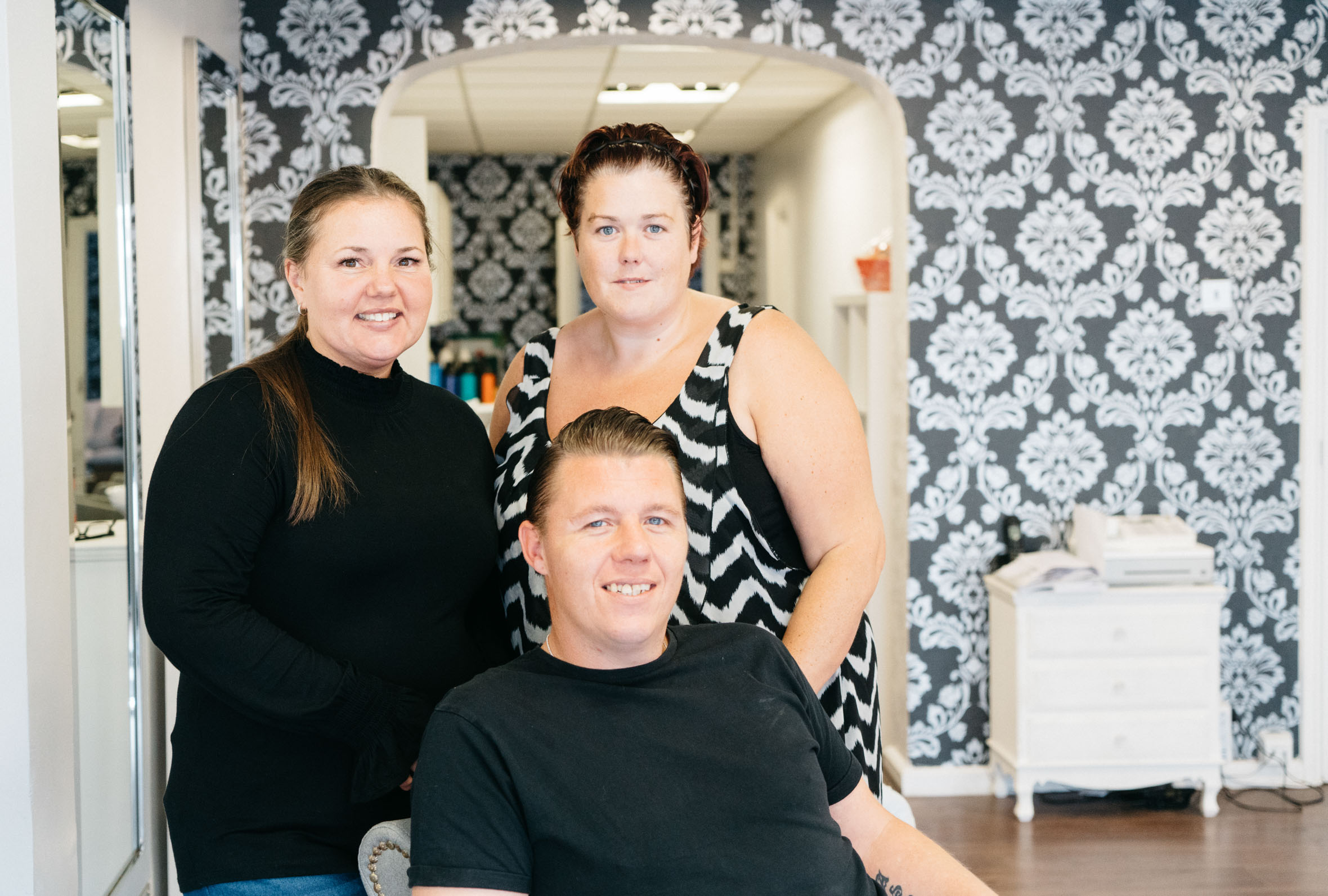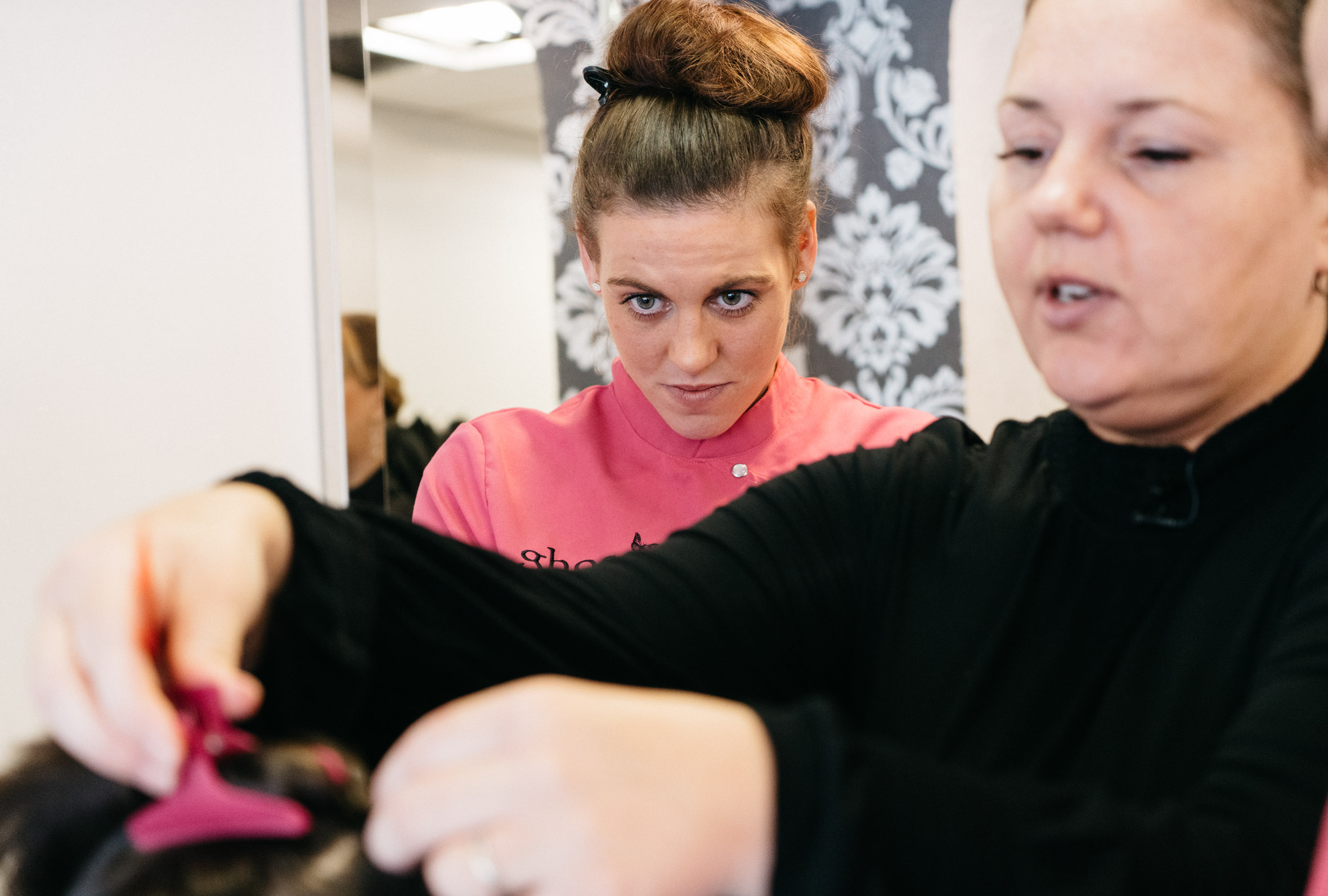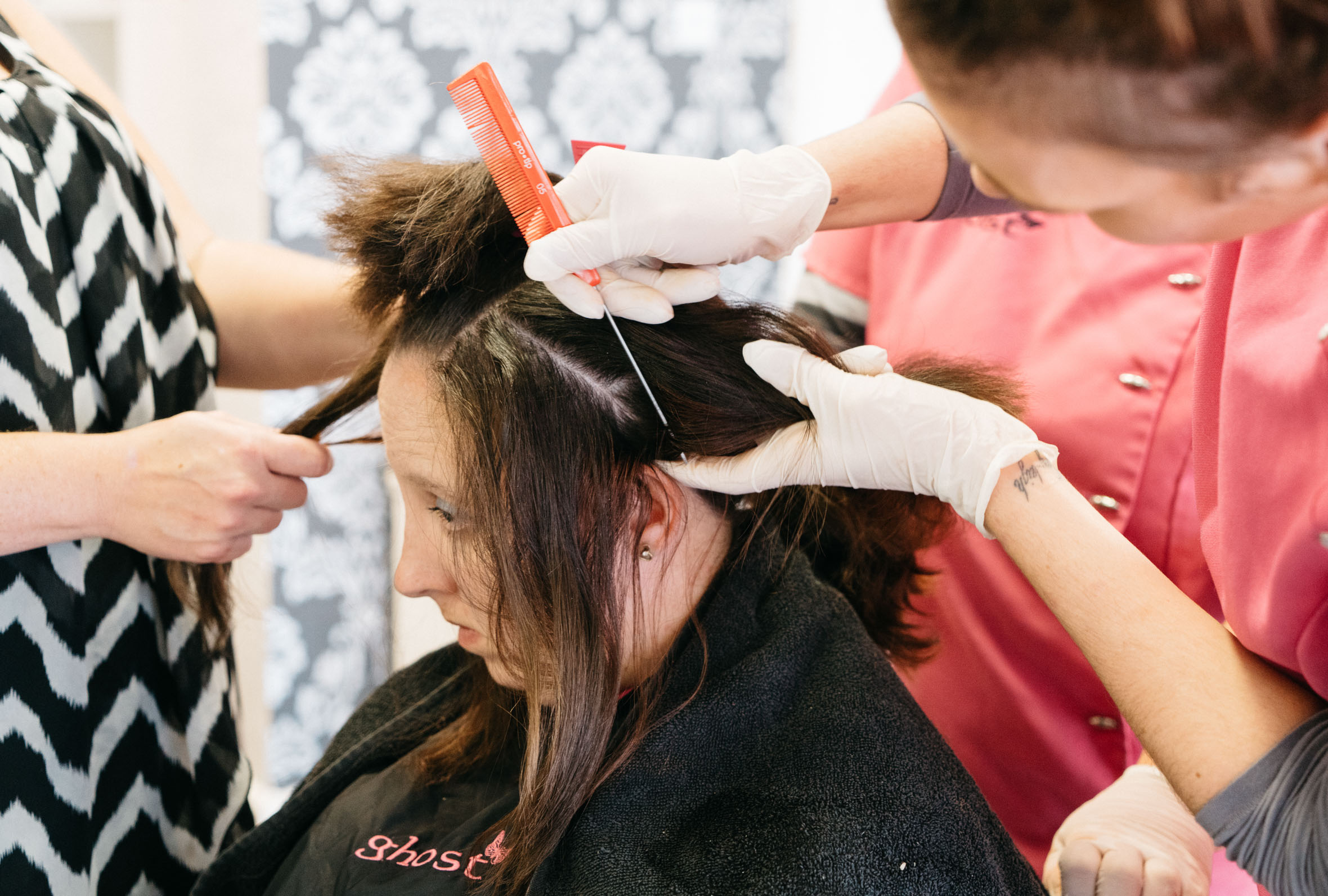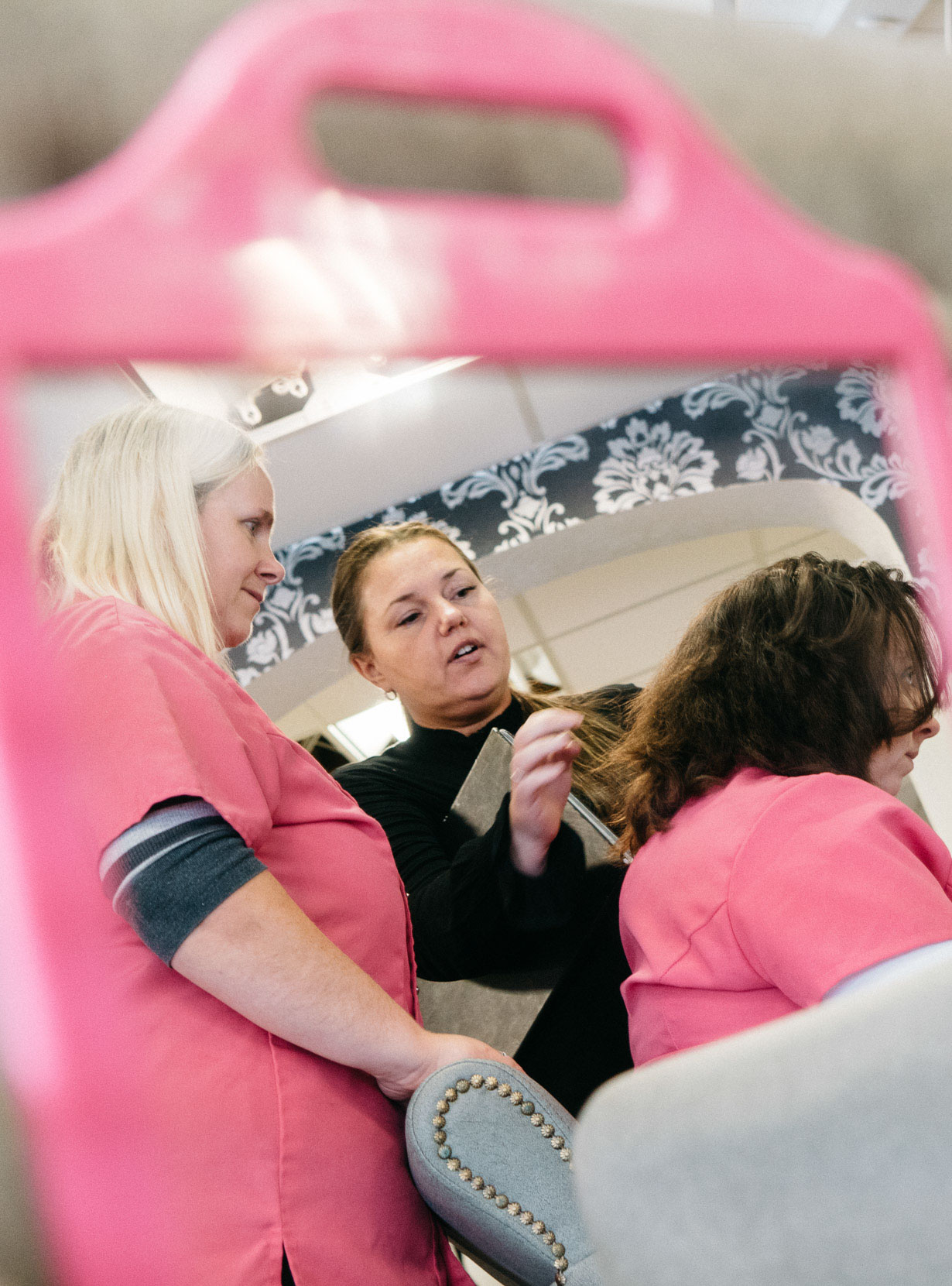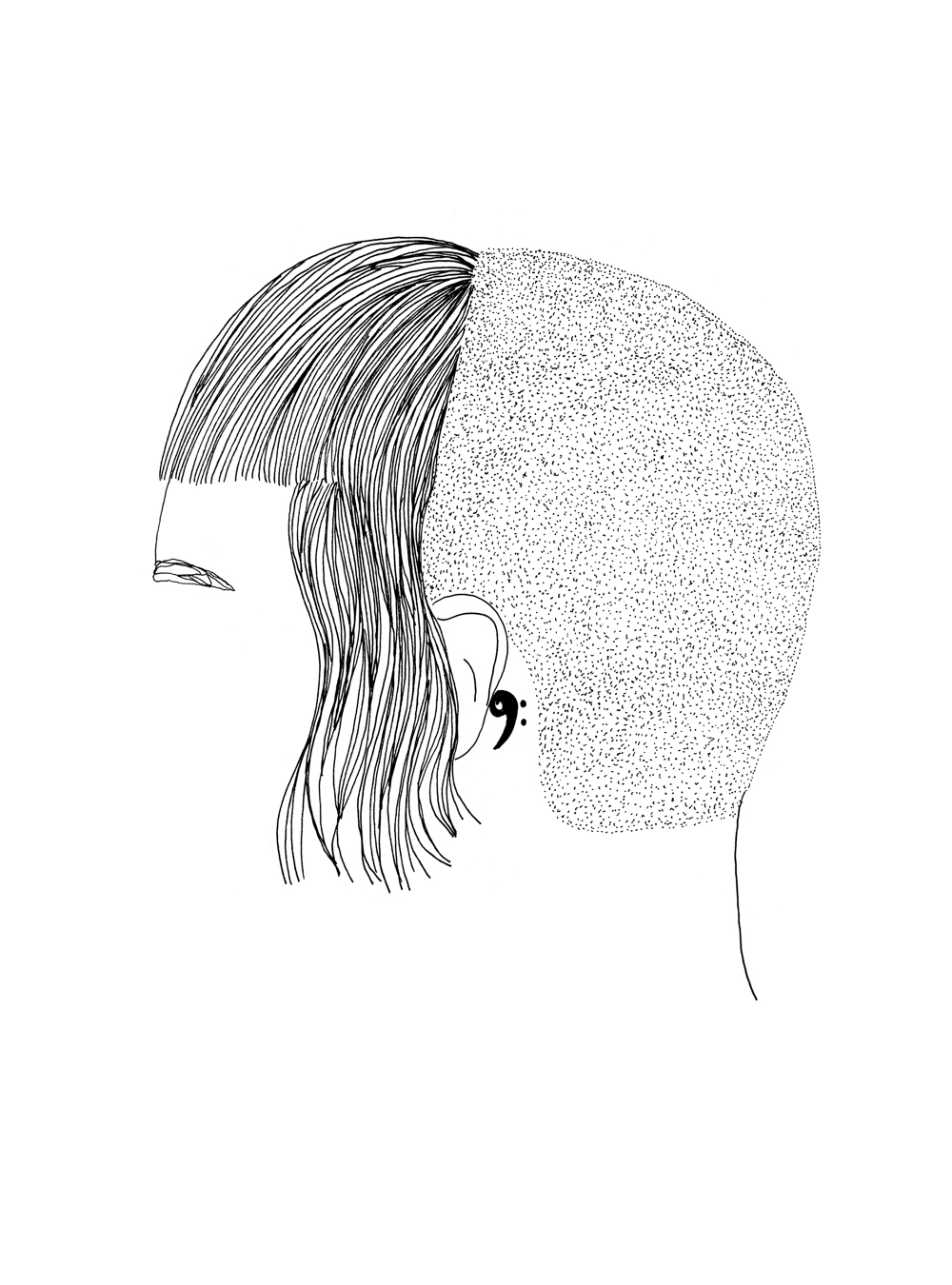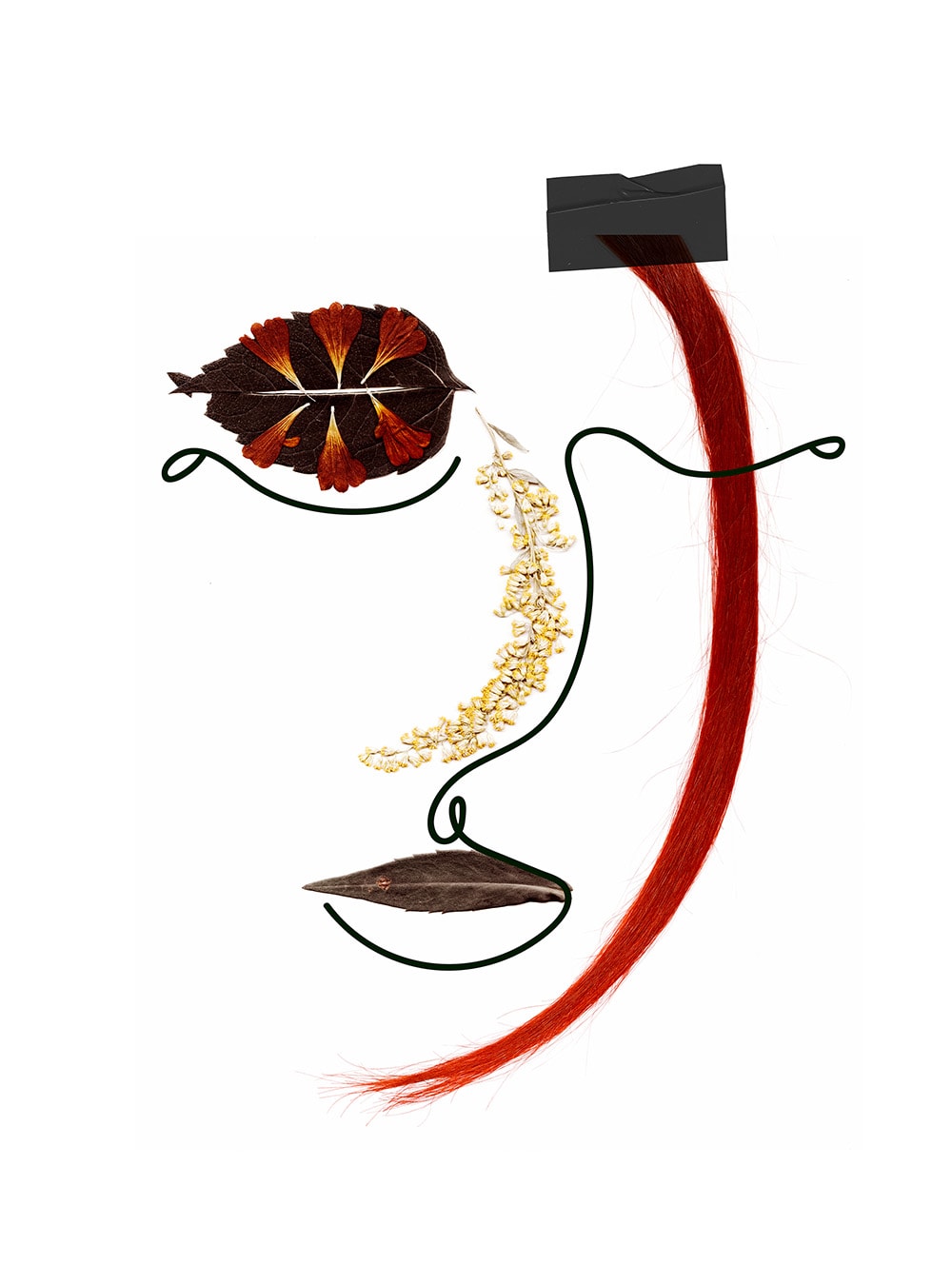PLACES: Through hairdressing, the Dagenham salon Ghost Academy aims to reintegrate vulnerable women back into the community
Interview: Alex Mascolo
Video: Antonio Celotto
Photography: Panos Damaskinidis
Special Thanks Sam Purnell
Ghost Academy is a salon dedicated to helping vulnerable women in the community through hair. By teaching hairdressing – a profession known for its sociability – Sam Purnell and her team aim to not only provide the women on their courses with a new set of skills, but help to instill a sense of purpose and normality back into their lives.
Situated on a quiet street in Dagenham, Essex, is the salon Ghost Academy. From the outside it may look just like any ordinary salon, but to many women, it has meant a great deal more. Run by hairdresser Sam Purnell, Ghost Academy’s intensive 12-week hairdressing courses aim to reintegrate women of various disadvantaged backgrounds back into the community. In addition to providing women with an NVQ qualification, the courses are supplemented with workshops that aim to tackle difficult issues within their lives, ranging from talks on alcohol awareness and sexual health, to employability training and weekly one-to-one counselling sessions.
Purnell was motivated to start Ghost Academy when she became aware of some of the issues facing a young woman who worked at her salon. “She had been through the care system and hadn’t been treated very well,” she explains. “Although her family were lovely, they weren’t the support system that she needed and there was no real help available. I don’t believe that you can moan about things unless you’re willing to do them yourself… so I did!
After completing her training to become a qualified teacher, Purnell set up the academy. She approached Barking and Dagenham Council – an area with a high proportion of women offenders in London – and requested that they send her “30 of their hardest-to-reach females to work with”. This saw her initially receive 46 women, some of whom were ex-offenders, heroin addicts, prostitutes and extremely isolated individuals. With just 7% of the 46 women going on to reoffend, the results stunned the council. Purnell has since secured funding from the National Lottery and Evening Standard Dispossessed Fund to continue her work. To date, Ghost Academy has helped over 146 women, not including those currently enrolled on courses. Purnell’s holistic approach is regarded as one of the main reasons for the programme’s success.
“I absolutely love the work we do here and I enjoy every session.”
“We are different to mainstream further education,” she explains, “with us it’s more about building you up so that you feel better about yourself, and then focusing on the hairdressing training”.
INFRINGE visited Dagenham to meet the extraordinary woman behind Ghost Academy.
Why do you think the programme at Ghost Academy has been so successful? We have an advantage over the local borough, who can only work within the boundaries of their job descriptions. The women enrolled on the courses can tell me anything they want to, and we work together to try and find a way forward. I’ve found that many people who have had troubled childhoods or have gone through traumatic experiences tend to shy away from people, whereas hairdressing is a profession that encourages conversation.
You also provide other workshops alongside the programme – can you tell us a little bit about them? A lot of the girls have suffered sexual abuse, domestic violence, drug and alcohol addiction, or have had long-term unemployment. So, I targeted all of those departments within the council and told them that if they wanted to make changes they were going to have to make them with us. We now have sexual health talks with the Terrance Higgins Trust, a council member will come and talk about CVs and interviews and we run further workshops that look at self-esteem, parenting and positive thinking.
Can you tell us about the learning process on the programme? Everybody has had issues and traumas in their life, so at Level 1 we focus on self esteem and positive thinking. We’ll do all of our sessions together so that we can build a support system. Level 2 is purely hairdressing, which has never been a problem as I love it, so I just teach it from a passionate point of view. Although Level 1 is a simple qualification I take it very seriously and won’t sign them off unless I’m happy to have them blow-drying on my shop floor.
What are some of the difficulties you face when running these courses? I absolutely love the work we do here and I enjoy every session. The struggles are more with the council. I was quite naive in the beginning in thinking that everyone goes above and beyond their job role like we do. But I now understand why they can’t, because of pay cuts and the fact that they are doing three people’s jobs instead of one.
What’s in store for the future? We recently presented at an event held in London by the DCLG (Department of Housing, Planning and Local Government), where council members discuss good practice. We were used as an example and asked how our system could be recreated in other areas, but right now we don’t have the team to be able to confidently go and set someone up in another borough. We currently have three teachers that have been through our academy and I would like to bring people up with me rather than hiring new people who don’t understand what we’re about. So, for the future – more of us. One of us in every borough!
Ghost Academy is at 7 Tolworth Parade, East Rd, Dagenham, Romford RM6 6YU
- ANTHROPOLOGY OF HAIR
- ANTHROPOLOGY OF HAIR
- ANTHROPOLOGY OF HAIR
- ANTHROPOLOGY OF HAIR
- ANTHROPOLOGY OF HAIR
